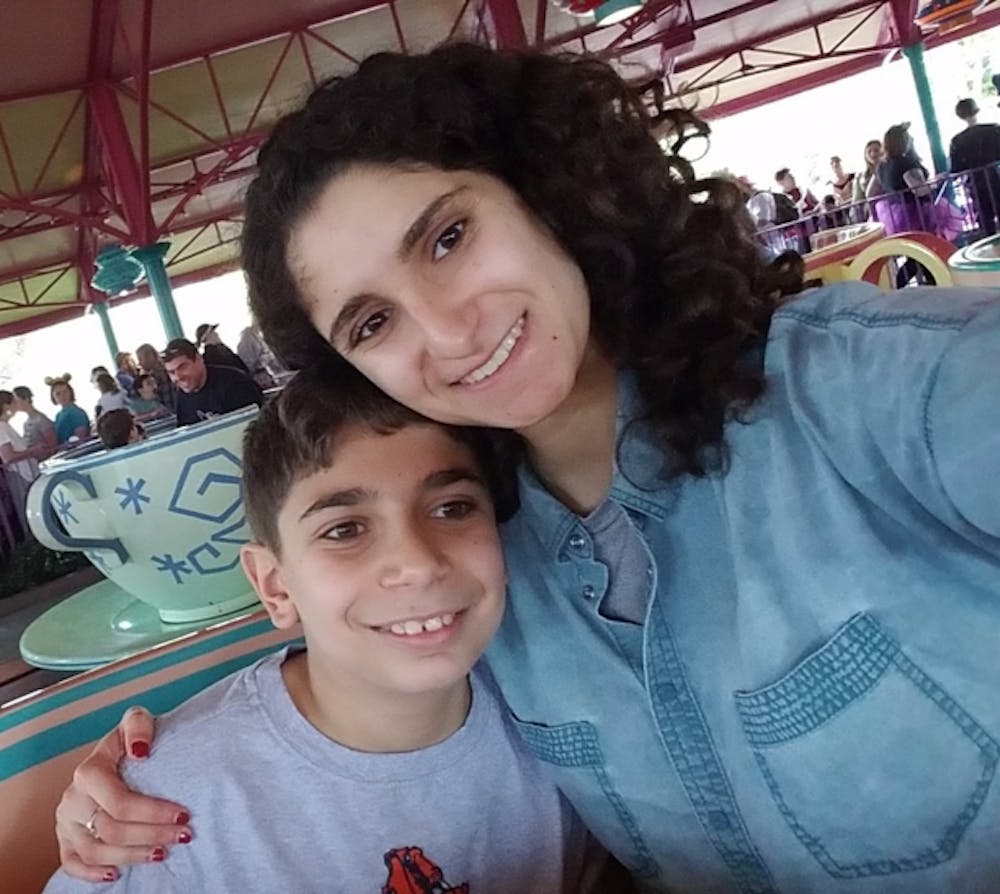Writing about mental health is a touchy subject for me.
That’s not because I am dealing with anxiety, or depression or another form of mental illness myself. I am extremely fortunate in that I don’t, to my knowledge, have a mental health issue or disability.
However, one of my favorite people in the world has what I would classify to be one. He’s my little brother, and he has autism.
Before the pitchforks come out, let me just say that I’m aware that I’m defining terms when I classify autism as a mental illness. It is not a universal belief that autism falls under this category. A developmental disorder, yes. But is someone dealing with autism the same as someone dealing with a mental health issue?
In general, when the topic of mental health comes up, I’m unsure if I can contribute to the conversation. Even though my brother’s disability is obvious to me, the idea of autism being a mental illness is one that is hotly debated.
I wouldn’t guess that “mental illness” can be defined in just a few words, but according to the internet, it can. Psychiatry.org defines mental illnesses as “health conditions involving changes in emotion, thinking or behavior (or a combination of these).” They are also “associated with distress and/or problems functioning in social, work or family activities.”
According to this definition, my brother’s form of autism would fall under this category. Eitan goes to school every day, likes watching videos on YouTube, plays Wii Sports like an expert and has perfect pitch, unlike all of the other musically challenged members of my family.
But Eitan is also extremely challenged in a lot of ways. He talks, but he can’t have real, complete conversations longer than a few sentences (and typically, even forming those sentences coherently is a challenge). He reads, but he generally won’t unless there are pictures, the words are simple and he’s being told to. He enjoys the outside world, but he can’t leave the house without supervision, because he still doesn’t know to not trust strangers, and he often forgets to look both ways before crossing the street, even though he’s almost a teenager.
All of these traits suggest a developmental disorder, not a mental illness. But what about Eitan’s tendency to scream when he doesn’t get his way? What about his need for certain lights to be off and doors to be shut at all times? What about his inability to explain why he doesn’t like something, instead of throwing a tantrum more appropriate for a two-year-old than for a 12-year-old?
Don’t get me wrong; I love my brother, more than I can describe. And people are amazing to him. Really, really amazing — he knows my sister’s and my friends from home, and they’re all sweet to him. He is loved by the administrators and “typical” students alike at all of the schools he’s attended. The stereotype of bullying the different kid — a worry that I’ve always had when it comes to Eitan going anywhere — has never manifested, at least not in a way that anyone close to him can tell.
I feel as though, on some level, people are afraid to classify autism as a mental health disorder because of the wide range of people who are on the autism spectrum. They are not all like my brother. A great many autistic people have the ability to fight for themselves against questionable causes, such as Autism Speaks, and to tell their own stories.
To those on the spectrum, I quite honestly say, all the power to you. Without you fighting for recognition and acceptance, perhaps Eitan would have fallen victim to those classic bullies, rather than being loved by his peers and mine.
I hesitate, too, to definitively call autism a true mental illness. It would suggest a need to change who Eitan is; it would suggest that autism is a health problem which needs to be fixed. I don’t want to think of my brother — or any of the others I know on the autism spectrum — as needing to be fixed.
And yet, I hesitate to not call autism a mental illness. Eitan also has anxiety, obsessive-compulsive disorder (OCD) and a mild case of Tourette’s. Some of these are classified as mental illnesses, and it’s acceptable to treat them as such. I hate that my brother immediately worries about when we’ll go home as soon as we leave the house, and that for months he had a compulsive need to line our living room floor with 70 toy tractors, all in a specific order, all facing the same direction.
These traits can be downplayed with medicines and therapy, and the world accepts that it’s okay to do so, just as a depressed person may take anti-depressants to alleviate their symptoms. So why are my brother’s autistic tendencies not viewed in the same way? Not all of them, but the ones that make his life more difficult for those around him, and more importantly, for himself? Why is it controversial to admit that, in his case, he needs help?
Perhaps the most important part of the Psychiatry.org page on mental illness isn’t the definition it provides. On the side of the page, in a font several times larger than the main text, are two clear, concise sentences in a standout shade of blue: “Mental illness is nothing to be ashamed of. It is a medical problem, just like heart disease or diabetes.”
Whether autism falls under the category of mental illness or not, I hope that we can all agree with this statement. Developmental disorders, mental disorders and autism spectrum disorder are nothing to be ashamed of. And all of them should be treated in the same way that any medical issue would — with respect and the best care possible.





